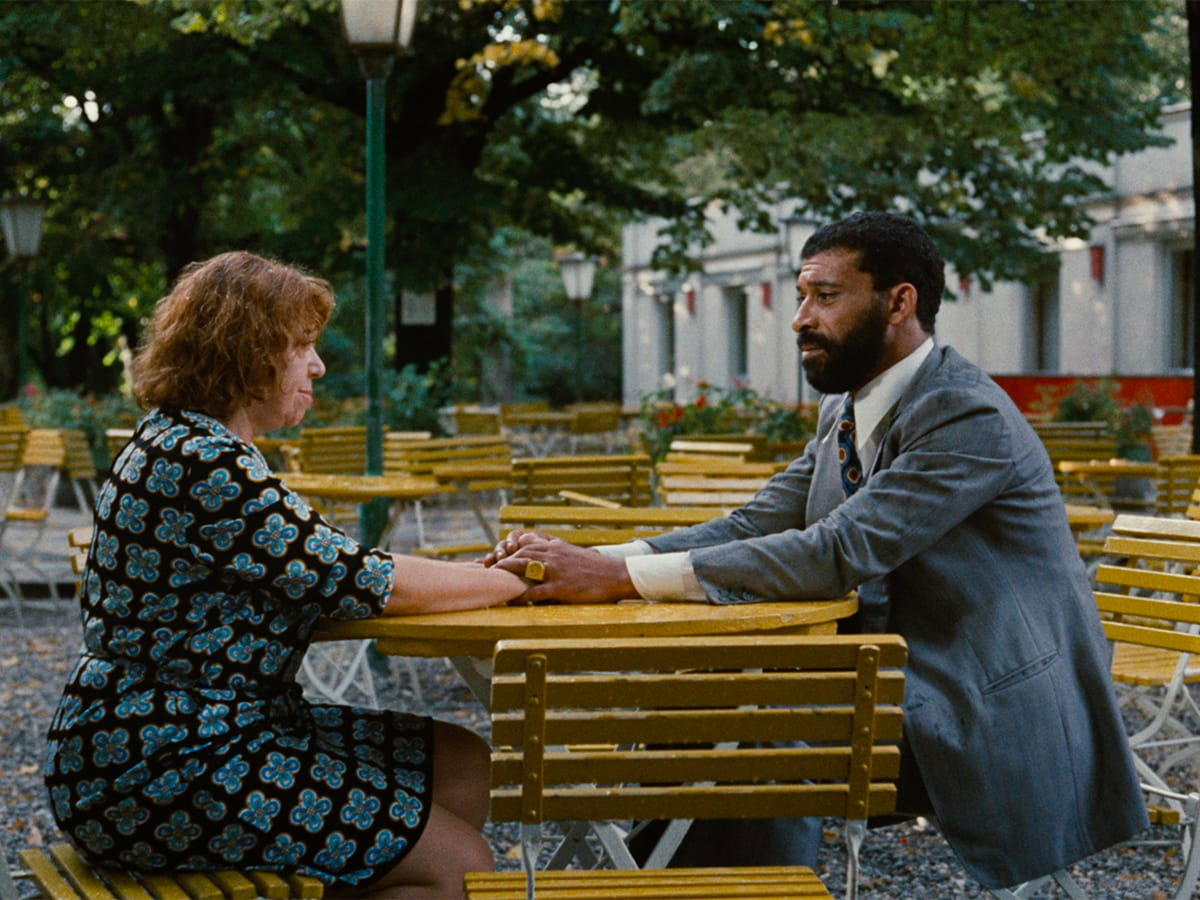
Rainer Werner Fassbinder pays homage to his cinematic hero Douglas Sirk with this update of that filmmaker’s 1955 All That Heaven Allows. A lonely widow meets a much younger Arab worker in a bar during a rainstorm. They fall in love, to their own surprise – and to the outright shock of their families, colleagues, and drinking buddies. In Angst essen Seele auf, Fassbinder expertly wields the emotional power of classic Hollywood melodrama to expose the racial tensions underlying contemporary German culture.
“This is the kind of thing Douglas Sirk makes movies about. People can’t live alone, but they can’t live together either. This is why his movies are so desperate. All That Heaven Allows opens with a long shot of the small town. The titles appear across it. Which looks very sad. It is followed by a crane shot down to Jane’s house, a friend is just arriving, bringing back some crockery she had borrowed. Really sad! A tracking shot follows the two women and there, in the background, stands Rock Hudson, blurred, in the way an extra usually stands around in a Hollywood film. And as her friend has no time to have a cup of coffee with Jane, Jane has her coffee with the extra. Still only close-ups of Jane Wyman, even at this stage. Rock has no real significance as yet. Once he has, he gets his close-ups too. It’s simple and beautiful. And everybody sees the point. [...] Women think in Sirk’s films. Something which has never struck me with other directors. None of them. Usually women are always reacting, doing what women are supposed to do, but in Sirk they think. It’s something that has to be seen. It’s great to see women think. It gives one hope. Honestly. [...] Then, in Sirk, people are always placed in rooms already heavily marked by their social situation. The rooms are incredibly exact. In Jane’s house there is only one way in which one could possibly move. Only certain kinds of sentences could come to mind when wanting to say something, certain gestures when wanting to express something.”
Rainer Werner Fassbinder1
“There’s a sense throughout Fear Eats the Soul that the world has become still. Even copulation is static, as in the scene of Ali’s coupling with the bar owner. The sense of timelessness that pervades the film is instilled not just through the long, strange moments of silence and immobility but also through the way the characters constantly generalize about life. ‘Fear eat soul’ (a closer translation of the film’s ungrammatical German title, Angst essen Seele auf). ‘Time heals all wounds.’ ‘Money spoils a friendship.’ ‘In business you have to hide your aversions.’ ‘Half of life consists of work.’ ‘Germans with Arabs not good.’ ‘Think much, cry much.’ ‘Dark clothes look so sad, don’t they?’ ‘It’s no fun drinking alone.’ The sententiousness of these lines adds to the film’s impression of stillness. In them, a way of looking at life has solidified and become accepted as natural and permanent. [...] Fassbinder praised Sirk as ‘a man who loves human beings and doesn’t despise them as we do.’ As Ali in Fear Eats the Soul shows, he gave himself too little credit.”
Chris Fujiwara2
- 1Rainer Werner Fassbinder, “Six Films by Douglas Sirk,” New Left Review 91, May-June 1975. All That Heaven Allows (Douglas Sirk, 1955) inspired Fassbinder’s Angst essen Seele auf.
- 2Chris Fujiwara, “Ali: Fear Eats the Soul: One Love, Two Oppressions,” Criterion Collection, 2 October 2014.